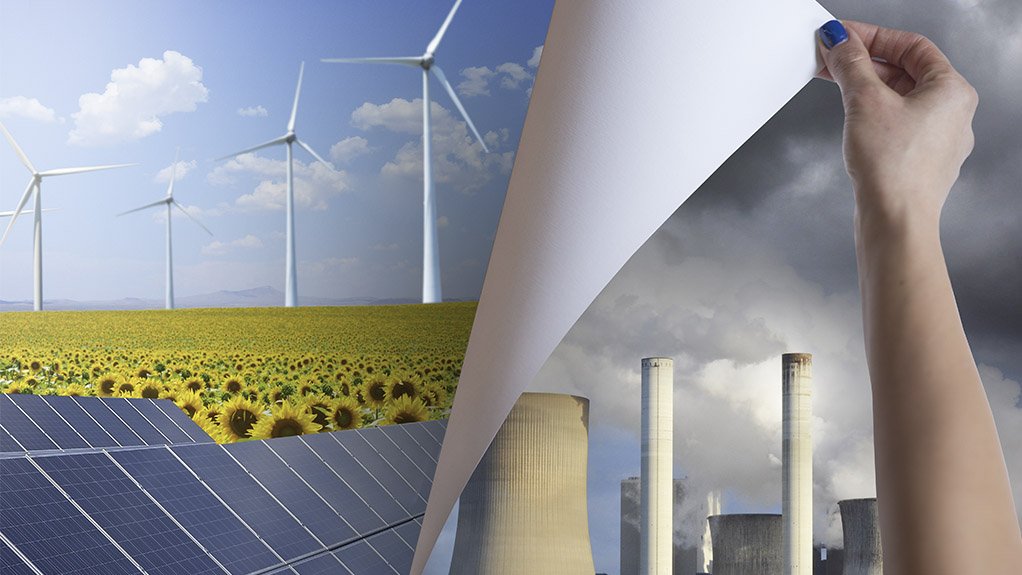Energy transition is accelerating, but fossil fuel emissions to overshoot targets by 50%
While the new climate finance goal of $300-billion a year from developed nations to support developing nations' energy transition by 2035, and the aim to mobilise an additional $1.3-trillion a year from other finance sources, both agreed to at the twenty-ninth Conference of the Parties (COP29), are positive, they are far below the estimated $3-trillion a year needed to achieve climate goals, said industry analysis and forecasting company BMI.
In reviewing the implications of the agreements and delays at COP29, the company pointed out that the $ 300-billion-a-year pledge, when inflation was taken into account, represented only about a doubling of support for climate actions in developing nations.
Under intergovernmental organisation the International Energy Agency's (IEA's) sustainable development and net-zero scenario, clean energy investments in developing markets need to reach $3-trillion a year between 2031 and 2035, said BMI Power and Energy Transition analyst Ella Doyle.
"Given that this is larger than the less concrete goal of mobilising $1.3-trillion a year by 2035, we are not close to achieving the required investments by 2031. We are, therefore, bearish that this financing agreement [agreed at COP29] will be high enough to meet Paris targets, although COP30 is expected to scale-up the goal of $1.3-trillion a year," she said.
The impact of this is that there will continue to be a slow energy transition in emerging markets.
BMI's analysis shows a diverging trend between emerging and developed market emissions, and emerging market emissions are forecast to continue rising to 2035.
The slow adoption in emerging markets is owing to a lack of investments in grid, power, storage and renewables. Without a significant scaling-up of finances, this trend will continue.
However, BMI's analysis shows that emissions growth in emerging markets is expected to slow towards the end of the ten-year analysis period to 2035, meaning that clean energy will accelerate towards the end of the decade, Doyle said during the BMI 'COP 29: Balancing Faster Climate Action and Economic Development' webinar on November 28.
The current Nationally Determined Contributions (NDCs) of countries are insufficient to meet the Paris Agreement goals of 2 °C warming above preindustrial levels and an additional goal of limiting warming to only 1.5 °C, meaning that the world is far off the amount by which global emissions are required to fall.
However, despite this bearish context, BMI expects to see global clean energy accelerate and for major developed and emerging markets to continue leading the way in decarbonising their energy systems, she added.
From an oil and gas industry perspective, while there was hope the commitment made by countries at COP28 to transition away from fossil fuels would be strengthened at this year's talks, the commitment was instead remitted entirely from the final text, said BMI Oil & Gas Research associate director Emma Richards.
"The energy transition is ongoing, but progress is very slow. We can see this from oil and gas demand, with our own forecasts showing that the world will overshoot the level of demand for oil and gas by 2030 by 50% compared to the levels required by IEA estimates to meet Paris targets, which is a shocking overshoot," she said.
A significant barrier to progress is the ongoing subsidisation of fossil fuels, which disincentivises the switch to alternative, low-carbon fuels.
"While there are significant fiscal benefits countries can realise by rolling back subsidy support for fossil fuels, the social and political circumstances can be challenging, dragging on subsidy reform efforts," she noted.
However, as a heavy emitter, the oil and gas sector has an important role to play in reducing emissions to 2030, with its most important contribution being curbing methane emissions.
Methane is a potent greenhouse gas )GHG) and most emissions of methane that can be cut by 2030 are fossil fuel-related.
"We have technology and commercially viable abatement options, with the IEA estimating that two-thirds of methane emissions can be abated at no net costs to the companies.
"We are not on track to reach the net-zero methane emissions from the oil and gas sector by 2030, but it is feasible," Richards noted.
Reducing emissions from the oil and gas sector requires that high-level government commitments translate to impactful policies and better use of tools available to tackle the sector's emissions.
However, BMI was optimistic about progress, and emissions monitoring and verification over the next few years would aid progress, she said.
Meanwhile, the consensus was that COP29 was not particularly substantial for the agriculture sector, with the main achievement being the declaration to reduce methane emissions from organic waste, which was signed by the seven largest economies that together account for about 40% of global methane emissions from organic waste, said BMI Agribusiness commodities analyst Lucrezia Cogliati.
Other countries would also set targets. This agreement was important for agriculture and food, with food waste being a large driver of methane from organic waste, she noted.
"The perceived tension during negotiations between compliance and development have weighed on progress in the field.
"The discussions on methane abatement are a good example. Methane emissions from agriculture and food waste are prominent [as a GHG] and a prime target for mitigation strategies.
"Almost 40% of global methane emissions are from ruminant livestock. Meat consumption generally increases with development and demand for proteins will grow in developing countries," she explained.
Similarly, rice, which is a staple food in many countries, also contributes to methane generation owing to anaerobic conditions of the water it is often grown in.
"With rice, the water condition can be managed. It is not particularly complex but would require increasing access to irrigation and changing long-standing farming practices, which complicates the matter, particularly for smallholder farmers," she illustrated.
The food system is also important in terms of reducing emissions, as pre- and post-production processes have overtaken land-use changes in terms of generating emissions.
"We are bearish about seeing significant changes in the short- to medium-term. Our bearish outlook is compounded by the fact that agriculture faces a significant lack of funding for climate change-related strategies," Cogliati said.
Further, policies only addressed 40% of the emissions from agriculture and less than 5% of private finances were allocated to this space, she noted.
"The agriculture sector is important in discussions on climate change as a driver and victim of climate change," she said.
Article Enquiry
Email Article
Save Article
Feedback
To advertise email advertising@creamermedia.co.za or click here
Press Office
Announcements
What's On
Subscribe to improve your user experience...
Option 1 (equivalent of R125 a month):
Receive a weekly copy of Creamer Media's Engineering News & Mining Weekly magazine
(print copy for those in South Africa and e-magazine for those outside of South Africa)
Receive daily email newsletters
Access to full search results
Access archive of magazine back copies
Access to Projects in Progress
Access to ONE Research Report of your choice in PDF format
Option 2 (equivalent of R375 a month):
All benefits from Option 1
PLUS
Access to Creamer Media's Research Channel Africa for ALL Research Reports, in PDF format, on various industrial and mining sectors
including Electricity; Water; Energy Transition; Hydrogen; Roads, Rail and Ports; Coal; Gold; Platinum; Battery Metals; etc.
Already a subscriber?
Forgotten your password?
Receive weekly copy of Creamer Media's Engineering News & Mining Weekly magazine (print copy for those in South Africa and e-magazine for those outside of South Africa)
➕
Recieve daily email newsletters
➕
Access to full search results
➕
Access archive of magazine back copies
➕
Access to Projects in Progress
➕
Access to ONE Research Report of your choice in PDF format
RESEARCH CHANNEL AFRICA
R4500 (equivalent of R375 a month)
SUBSCRIBEAll benefits from Option 1
➕
Access to Creamer Media's Research Channel Africa for ALL Research Reports on various industrial and mining sectors, in PDF format, including on:
Electricity
➕
Water
➕
Energy Transition
➕
Hydrogen
➕
Roads, Rail and Ports
➕
Coal
➕
Gold
➕
Platinum
➕
Battery Metals
➕
etc.
Receive all benefits from Option 1 or Option 2 delivered to numerous people at your company
➕
Multiple User names and Passwords for simultaneous log-ins
➕
Intranet integration access to all in your organisation





















